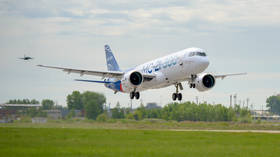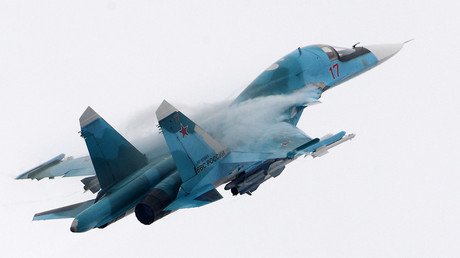American firms biggest losers from US ban on sales of composite materials to Russia

The US ban on composite materials to Russia has not stopped the production of its MC-21 passenger jet, but has deprived American businesses of up $200 million in revenues, according to the Russian trade minister.
Despite Washington’s move putting the brakes on production for at least half a year, Russia has found a way to proceed with development of the Irkut MC-21-300 plane, according to Minister of Industry and Trade Denis Manturov.
“We definitely won’t return to those suppliers who previously had the opportunity to do it [provide composite materials for the jet]. Speaking about the costs, it’s about $2 million for each plane,” the minister said at the 2019 Langkawi International Maritime and Aerospace (LIMA) exhibition in Malaysia on Monday. Given the order of composite supplies could cover up to 100 aircraft, US firms lost a deal worth up to $200 million.
Also on rt.com Substitute for Boeing Max? Russian MC-21 passenger jet to debut at MAKS 2019 Air ShowUS economic restrictions prevented American and Japanese firms from delivering the composite materials used for the wings of Russia’s new passenger jet, Russian media reported in January. Back then the producer of the MC-21 said that the design of the aircraft would not change because of the setback.
The manufacturer found an alternative composite supplier for the jet in South-Eastern Asia, and plans to switch to its own ones in future, according to Manturov. He added that Russia must work with those who do not “look back at the American partners.”
Also on rt.com Russia & China to sign ‘contract of the century’ for next-generation heavy helicopterMeanwhile, some US allies did not bow to pressure and did not quit the project. Canadian aircraft engine manufacturer Pratt & Whitney has continued to work on the Russian project.
If it successfully completes certification procedures, the MC-21 has a chance to become a direct competitor to the ill-fated Boeing 737 Max. Russia is currently finishing the tests of the aircraft’s alternative composite wings and hopes to finish both domestic and European certification next year. The aircraft is set to start commercial operations in early 2021.
For more stories on economy & finance visit RT's business section













